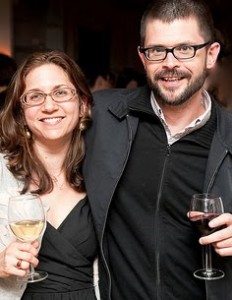The other night I was talking with a translator friend, Bill Martin, about the similarities between translating and groping for submerged memories. The conversation went something like this: Bill started telling me about the experience of translating the transcript of an RAF terrorism case aloud for a filmmaker wanting to get a quick overview of its contents, and he said that any time the words weren’t coming quickly enough, he found himself physically acting out whatever  gesture was being described. I do this too when I’m translating (or writing, for that matter) – it’s as if the muscle memory you call on when you perform the physical gesture can help summon up the words. I told Bill this reminded me of the moment when you’ve just woken up from a dream you can’t quite remember but feel as though you’re on the verge of remembering: you don’t know what happened in it, but the shape of the feeling its mood created is somehow there as a sort of abstract solid, something vaguely physical. This in turn reminded him of the way long-submerged memories sometimes make their way back to the surface, as he had experienced not long before when he ran into someone who remembered having met him at a dinner party in Paris a dozen years before. Bill couldn’t remember the evening in question, but then the man e-mailed him a photograph taken at that long-ago party, and even though the man himself wasn’t in the photo (he was holding the camera), looking at the picture brought back Bill’s memory of the evening and the stories of the other people who had been present at the dinner. He described this “coming back” of the lost memories as feeling like a physical return. And I, too, had experienced something similar just the night before when I met a man from Minneapolis – a town I visited many times in early childhood when my family was living in Rochester, MN. Minneapolis exists in my memory primarily in the form of a daycare center containing an indoor slide shaped like an enormous gray or light blue elephant housed in a large department store called Dayton’s (you climbed up stairs set into its back, and the slide was in its trunk). Well, if you went to Dayton’s, this man now said to me, you must also have seen the glass box of monkey musicians in the toy department – Dayton’s was famous for them. And as he described them, the memory of these mechanical musicians dressed in little red suits began coming back to me. I remember the feeling of looking up at them in their box and watching them perform, and am utterly convinced that I did see them as a child, though I cannot quite remember what they looked like. Composing this sentence, I find myself making the hand gesture that accompanies this memory, clapping my two fists together with their imaginary cymbals.
gesture was being described. I do this too when I’m translating (or writing, for that matter) – it’s as if the muscle memory you call on when you perform the physical gesture can help summon up the words. I told Bill this reminded me of the moment when you’ve just woken up from a dream you can’t quite remember but feel as though you’re on the verge of remembering: you don’t know what happened in it, but the shape of the feeling its mood created is somehow there as a sort of abstract solid, something vaguely physical. This in turn reminded him of the way long-submerged memories sometimes make their way back to the surface, as he had experienced not long before when he ran into someone who remembered having met him at a dinner party in Paris a dozen years before. Bill couldn’t remember the evening in question, but then the man e-mailed him a photograph taken at that long-ago party, and even though the man himself wasn’t in the photo (he was holding the camera), looking at the picture brought back Bill’s memory of the evening and the stories of the other people who had been present at the dinner. He described this “coming back” of the lost memories as feeling like a physical return. And I, too, had experienced something similar just the night before when I met a man from Minneapolis – a town I visited many times in early childhood when my family was living in Rochester, MN. Minneapolis exists in my memory primarily in the form of a daycare center containing an indoor slide shaped like an enormous gray or light blue elephant housed in a large department store called Dayton’s (you climbed up stairs set into its back, and the slide was in its trunk). Well, if you went to Dayton’s, this man now said to me, you must also have seen the glass box of monkey musicians in the toy department – Dayton’s was famous for them. And as he described them, the memory of these mechanical musicians dressed in little red suits began coming back to me. I remember the feeling of looking up at them in their box and watching them perform, and am utterly convinced that I did see them as a child, though I cannot quite remember what they looked like. Composing this sentence, I find myself making the hand gesture that accompanies this memory, clapping my two fists together with their imaginary cymbals.
P.S. Bill just reminded me that the link between the two parts of our conversation was that we were talking about the search for the right word in the translation process in terms of embodiment. This is something I’ve been thinking about a lot lately.
(Photograph of Bill and me © Beowulf Sheehan but cropped by me)

